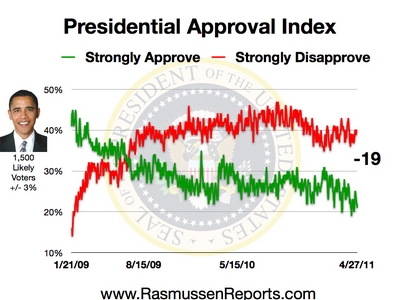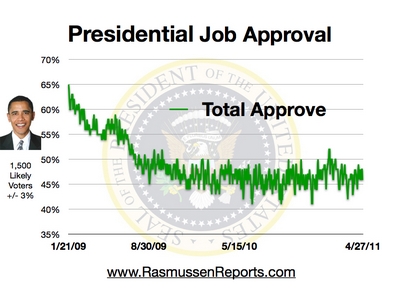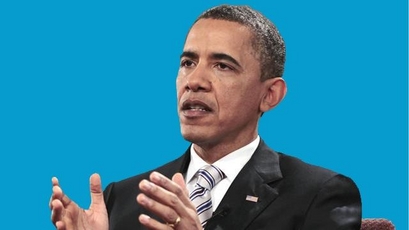While accepting the Oscar for best documentary earlier this year, Inside Job director Charles Ferguson came out with a bang.
"Forgive me, I must start by pointing out that three years after our horrific financial crisis caused by financial fraud, not a single financial executive has gone to jail, and that's wrong," he said.
At least one now has. Lee Farkas, former chairman of mortgage lender Taylor Bean, was convicted last week on 14 counts of conspiracy and fraud. He could spend the rest of his life in prison.
So there's one.
But why no others? After a financial crisis that doubled the unemployment rate and slaughtered wealth around the globe, nobody thinks one executive -- and one few have ever heard of -- was solely to blame. Nor is it how these things usually work out. After the savings and loan crisis of the early '90s, 800 financial executives went to prison. Not only have most bank execs avoided prosecution this time around, but many are still gainfully employed by the banks that ran the economy into the ground.
Why is a difficult question. I think it can be broken down into three parts.
1. The ground troops have been charged The most disgusting, outright
-fraudulent parts of the bubble years didn't take place on Wall Street. It took place on the ground in areas like Orange County and Las Vegas, where mortgage brokers, Realtors, and borrowers lied through their teeth, forged loan documents, and actively pursued screwing over anyone within reach. The industry of selling mortgages was a magnet for some of society's sketchiest characters. As the Financial Crisis Inquiry Commission
noted in January, "at least 10,500 people with criminal records entered the [mortgage
-broker] field in Florida, including 4,065 who had previously been convicted of such crimes as fraud, bank robbery, racketeering, and extortion."
Thousands of mortgage brokers and scam borrowers have indeed been charged, and in many cases jailed. In June 2008, before the financial crisis unraveled, the FBI busted 400 brokers in a single sting. A sting last summer brought
One borrower was found guilty of defrauding
Bank of America (NYSE:
BAC -
News) by "recruiting 'straw buyers' to apply for a mortgage loan for a home that he himself intended to occupy, and inflated the value of that home in order to increase the amount of the loan."
These guys did the same with loans from
JPMorgan Chase (NYSE:
JPM -
News).
These folks forged loan documents submitted to
Regions Financial (NYSE:
RF -
News). All were caught. All were charged. The public hasn't heard their stories because they don't involve the executive suite.
2. Coddling regulators, strapped detectives That few execs have been charged doesn't mean they're all innocent, of course.
High
-level fraud cases are typically referred to the Justice Department by industry regulators. The Department of Health and Human Services, for example,
works in tandem with the Justice Department to reel in medical fraud. Same for the Department of Agriculture. And the National Association of Insurance Commissioners.
Bank regulators are different. Since 2000, the Office of Thrift Supervision has not referred a single case of fraud to the Justice Department, according to The New York Times. The Office of the Comptroller of the Currency has referred just three cases.
There could be many reasons for this. The two regulators, though, have a long history of coddling the banks they oversee. They have every incentive to do so: Regulators' existence depend on banks -- or "clients," as the OCC refers to them as -- since fees paid by banks fund their operations. In some cases, banks can shop around for the regulator with the lightest touch.
That's what Countrywide did in 2007. Then-CEO Angelo Mozilo was frustrated with the demands of the OCC. Regulators were getting in his hair. Easy solution: Countrywide changed charters to fall under the purview of a gentler regulator, the OTS. As Connie Bruck of The New Yorker pointed out, the OTS actually lobbied Countrywide to make the switch.
Not that the OCC was a regulatory pit bull itself. When West Virginia tried to sue
Capital One (NYSE:
COF -
News) for credit card abuse in 2005, the company applied for a national charter with the OCC. By doing so, Capital One escaped West Virginia's jurisdiction, and the state lost authority to pursue its case. This wasn't an isolated incident. The OCC stopped Georgia when it attempted to enforce predatory lending laws. New York regulators were intervened while pursuing discriminatory lending investigations. The head of the Financial Crisis Inquiry Commission told former OCC head John Dugan, "You tied the hands of the states and then sat on your hands."
If regulators didn't make it hard enough, the FBI has seen a radical cut in the number of agents available to investigate financial crime. Law enforcement's focus began shifting to health care fraud in the '90s, and to terrorism after 9/11. During the savings and loan crisis, 1,000 FBI agents worked the financial-crimes scene. Today, just 240 do.
3. Stupid isn't illegal Crime deserves jail time. Idiocy is another issue.
This explains most of why so few major financial executives are behind bars. Blowing up your company isn't necessarily a crime. Leveraging 30-to-1 isn't unlawful. Neither is buying securities backed by homeowners unable to repay. Nor is ignoring caution signs. Or disregarding history. Much of what brought the financial system to its knees was unbelievably stupid and unethical, yet perfectly legal.
Investors were shocked, for example, after discovering Lehman Brothers used an accounting trick called
repo 105 to mask the health of its balance sheet. Yet as
The Wall Street Journal notes, "SEC officials have grown more worried they could lose a court battle if they bring civil charges that allege Lehman investors were duped by company executives. The key stumbling block: The accounting move, while controversial, isn't necessarily illegal."
Not only was this stuff legal, but lucrative. Many executives walked away rich. Filthy rich. This was heads they win, tails you lose, and in either case, jail remains elusive. You can almost hear them laughing now.



